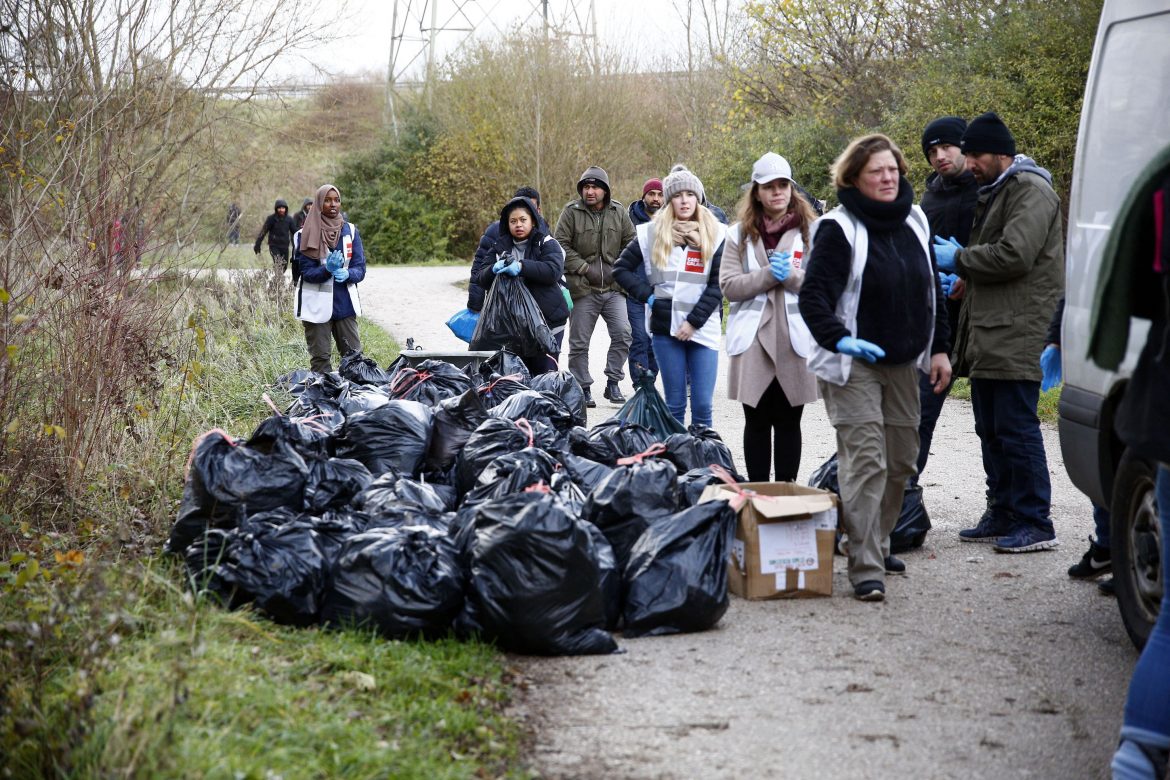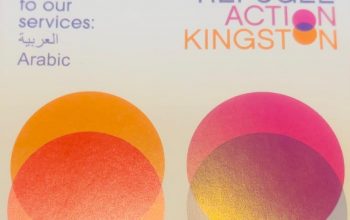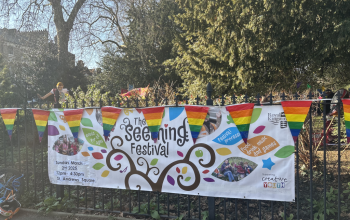“She is a superwoman,” said Sudanese refugee Moe about 45-year-old teaching assistant, Zeenat Bibi.
Charities and volunteers are helping Moe, and other refugees, with necessities, not only through the pandemic, but through the longest wait of their lives. Those seeking asylum in the UK are placed in temporary accommodation, moved around for months, if not years, just to have their cases heard.
When 33-year-old Moe arrived in England three months ago, he was initially placed in a hotel in Croydon. That is where he met the newest addition to the Care 4 Calais team, volunteer Zeenat Bibi from Thornton Heath.
“I’ve always been involved with different charities, but with lockdown, I had more time on my hands,” Bibi said. “I saw a post on Facebook from a lady in Wimbledon requesting donations for refugees coming to England as they didn’t have enough.
“My husband and I started gathering items from friends and family and taking them [to Wimbledon]. I was told about a hotel nearby, which was housing many refugees, and if we were able to help out there. That’s how it started.”
Zeenat Bibi’s story
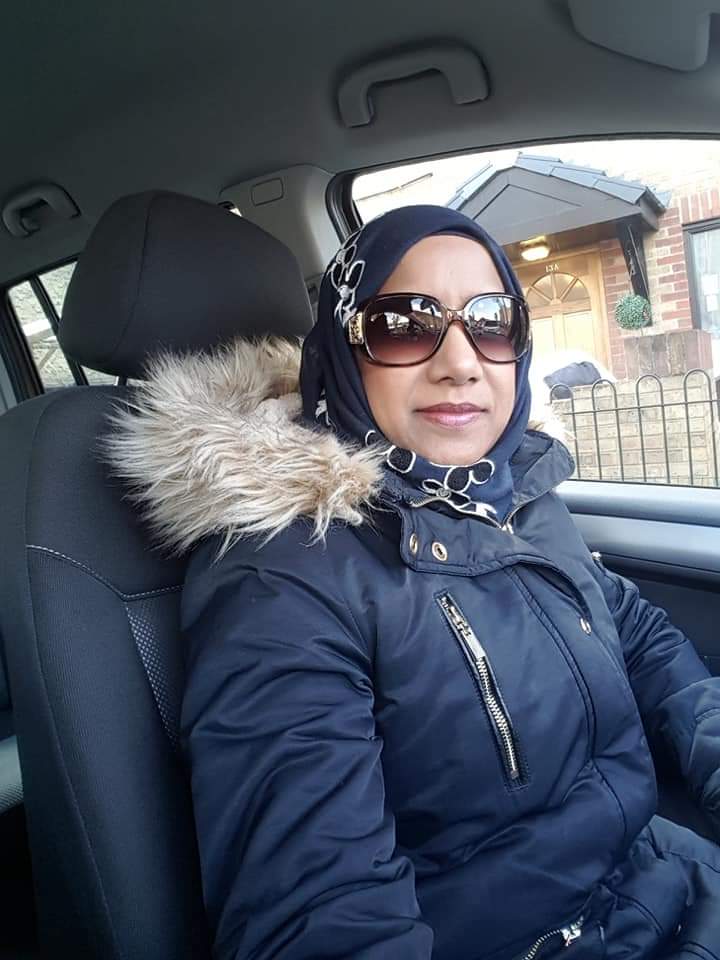
When Bibi met Moe in Croydon, there were about 100 refugees with him who were in desperate need of many items like clothes, shoes and toiletries.
At first, Bibi asked her friends and family for donations, but once the word spread through all her contacts on WhatsApp groups, Bibi was inundated with donations.
“My message went viral. My phone was buzzing with messages and phone calls. I had calls from outside of London. I had boxes posted to my house as my address had been shared.
“It was like a miracle, I received brand new clothes from people I didn’t even know. It was amazing!”
With help from her husband and two sons, Bibi spent many days during the lockdown making and distributing packs of essential items that individual refugees had requested.
“A lot of the people have gone through trauma. When you meet them, you can see how desperate they are, for little things like a pair of shoes or a tin of fruit,” said Bibi.
To become a regular volunteer with most charities, you need some basic training as well as a DBS clearance. Because of Bibi’s background of working in a school and the fact that she has a Level 2 in mental health awareness, it meant she was perfectly placed to get involved.
She spends most weekends dropping off donations, that are still coming thick and fast, to the refugees she has met in the last six months or so. For Christmas, Bibi and her contacts have made up gifts to hand out using the money people have donated.
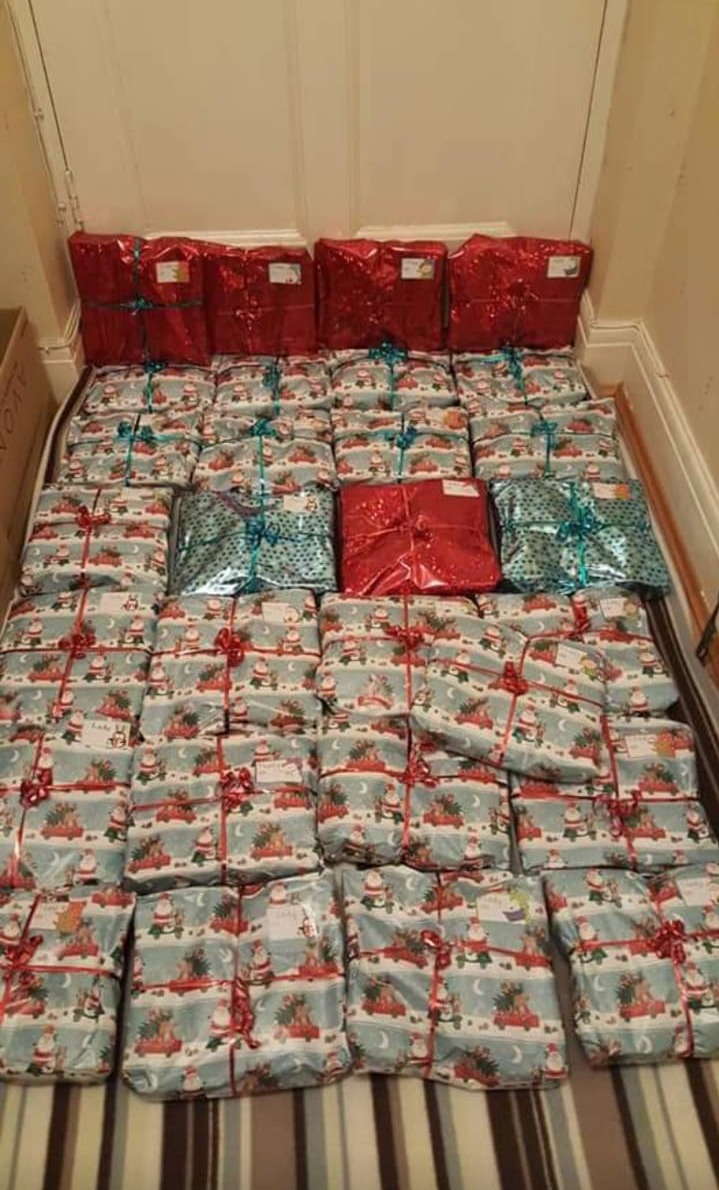
“My sitting room looks like a charity shop, and my shed is full, I have no floor space,” Bibi said.
What makes Bibi give up her free time to help others?
“I know what it’s like to not have any family. It’s very hard being here on your own,” she said.
Dire state of affairs
Healthcare professionals have cited serious problems with the poor living conditions of asylum seekers stuck in short-term accommodation, and with no idea of how long they will be there. Over 400 people are currently living at the Napier Barracks in Kent.
Last month, a letter written to the Home Office by healthcare professionals, expressed concerns regarding the mental and physical welfare of the people placed at the Barracks.
“Although these sites are not classified as detention centres, the sites bear many of the hallmarks of detention and operate like an open prison,” the letter said.
The UK takes a relatively small proportion of asylum seekers compared to our European neighbours. According to Refugee Action, in 2018, Germany had the highest number of asylum seekers at 161,900 and France the second highest at 114, 500. The UK had 35,566 applications for asylum in 2019.
At the end of 2018, the countries hosting the most refugees were Turkey (3.7 million), Pakistan (1.4 million) and Uganda (1.2 million). Sudan, who already had over a million refugees, has taken on a million more displaced people, just from the recent conflict in Ethiopia.
The UN Refugee Agency (UNHCR) reported that at the end of 2019, there were 79.5 million forcibly displaced people in the world, 85 per cent of whom were hosted by developing countries.
Safe Passage is a charity that focuses on helping unaccompanied child refugees. Laura Butlin from Safe Passage said the role of volunteers was integral.
She said: “Our incredible volunteers play a key role in supporting refugees to find safety and reunite with their families. Right now, more than 30 dedicated people offer their time and skills as volunteers, most often as interpreters and translators.”
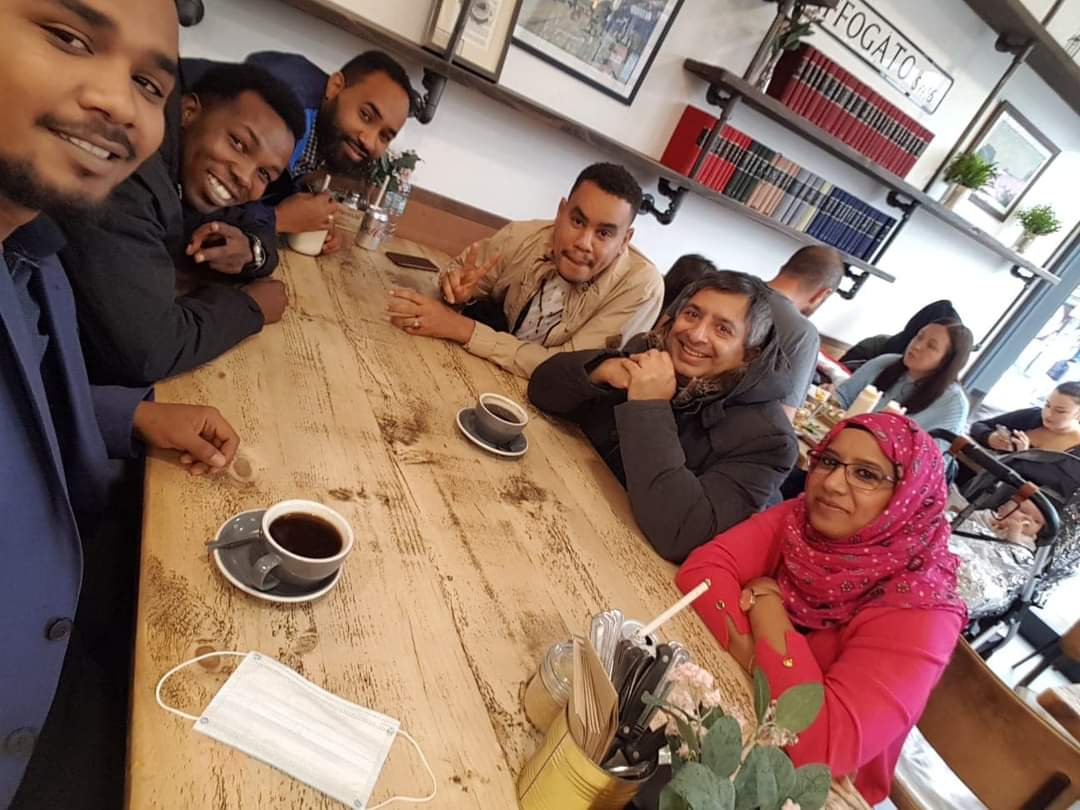
Zeenat Bibi and her husband taking out some refugees for a coffee Photo: Zeenat Bibi
Moe’s story
Back in Sudan, when Moe was chased by militia several times, he knew he had to leave.
Leaving his parents and wife behind, Moe fled his home, hoping to settle in The Netherlands. After almost 18 months of moving around, he reached Calais.
Moe was not allowed to stay in Calais for more than two weeks. It seemed everywhere he went he was moved along.
“I just want a safe place to stay,” said Moe.
The Home Office provided accommodation for Moe in a hotel and a £5 supermarket gift card per day to spend on meals. This did not leave him with much to spend. After a couple of months in Croydon, he was moved to a different hotel in North London.
Those seeking asylum in the UK are not allowed to work, formally study or claim benefits. However, Moe has been taking free online courses trying to improve his own English, as well as learning IT skills.
For someone who is just parked at a hotel or army barracks without knowing where they are going next, life is not easy. Moe has been in England for three months now and spends some of his free time volunteering for Care4Calais. He helps those who cannot speak English.
“We don’t have the right to work, so I’m trying to make good use of my time by helping my friends who don’t know how to express themselves in English,” he said.
“My father didn’t go to school. He dreamed about me becoming something. He wanted to push me, so he sent me to a high school which taught English. I just want to progress, go to college or university.”
But until Moe’s case is heard, he is in limbo. His friend has received a date for a hearing in April 2021 but Moe is still waiting to hear. Because of the coronavirus pandemic, the legal process has also been delayed. Moe has no idea how long it will take for him just to present his case.
“People arrive with only the clothes on their backs. They need warm, winter clothes. A church nearby has helped. Care4Calais volunteers are helping us a lot,” he said.
There are plenty of people donating clothes, but storing, sorting and distributing is the harder part. Churches, charities and volunteers like Bibi have been at the forefront getting things to those who need it most.
Volunteers are the middlemen who help the charities help the refugees. Without the help of volunteers and people’s goodwill, those seeking asylum would be lacking in basic necessities that the government has failed to provide.
“When the government takes people in, they should provide them with basic things to start off with, like a set of clothes. Some just have flip-flops. How can you leave people like that?” Bibi asked.
Refugee Action Kingston is an organisation specialising in helping asylum seekers and refugees. It offers a range of services from helping with English, access to legal advice, improving mental health and financial assistance in the form of food vouchers and material possessions.
If you’d like to help or donate, you can visit Refugee Action Kingston’s website.

